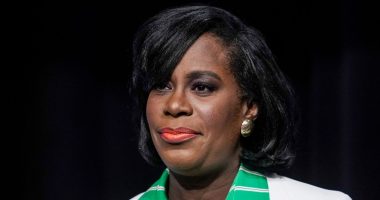
The Trump administration on Wednesday banned imports of cotton and tomato products from Xinjiang, the broadest U.S. ban yet to target allegations of forced-labor practices in the northwest Chinese region.
U.S. Customs and Border Protection said agents have been instructed to detain shipments containing these products, including those routed through or assembled in third countries in products such as apparel or tomato sauce.
The U.S. and other Western governments have criticized Beijing for human-rights abuses in Xinjiang, where the Chinese government has rounded up Turkic-speaking Uighurs and other predominantly Muslim minorities into a regionwide network of internment camps.
Companies face increasing scrutiny over their supply chains in China. The new ban could have a significant impact especially in the apparel sector, which has already faced a number of customs restrictions amid concern about forced labor linked to the camps.
Beijing has denied such allegations and calls the camps vocational training centers. A spokesperson for the Chinese Embassy in Washington called the forced-labor allegations groundless and criticized Wednesday’s order as an attempt by the U.S. to suppress Xinjiang enterprises.









